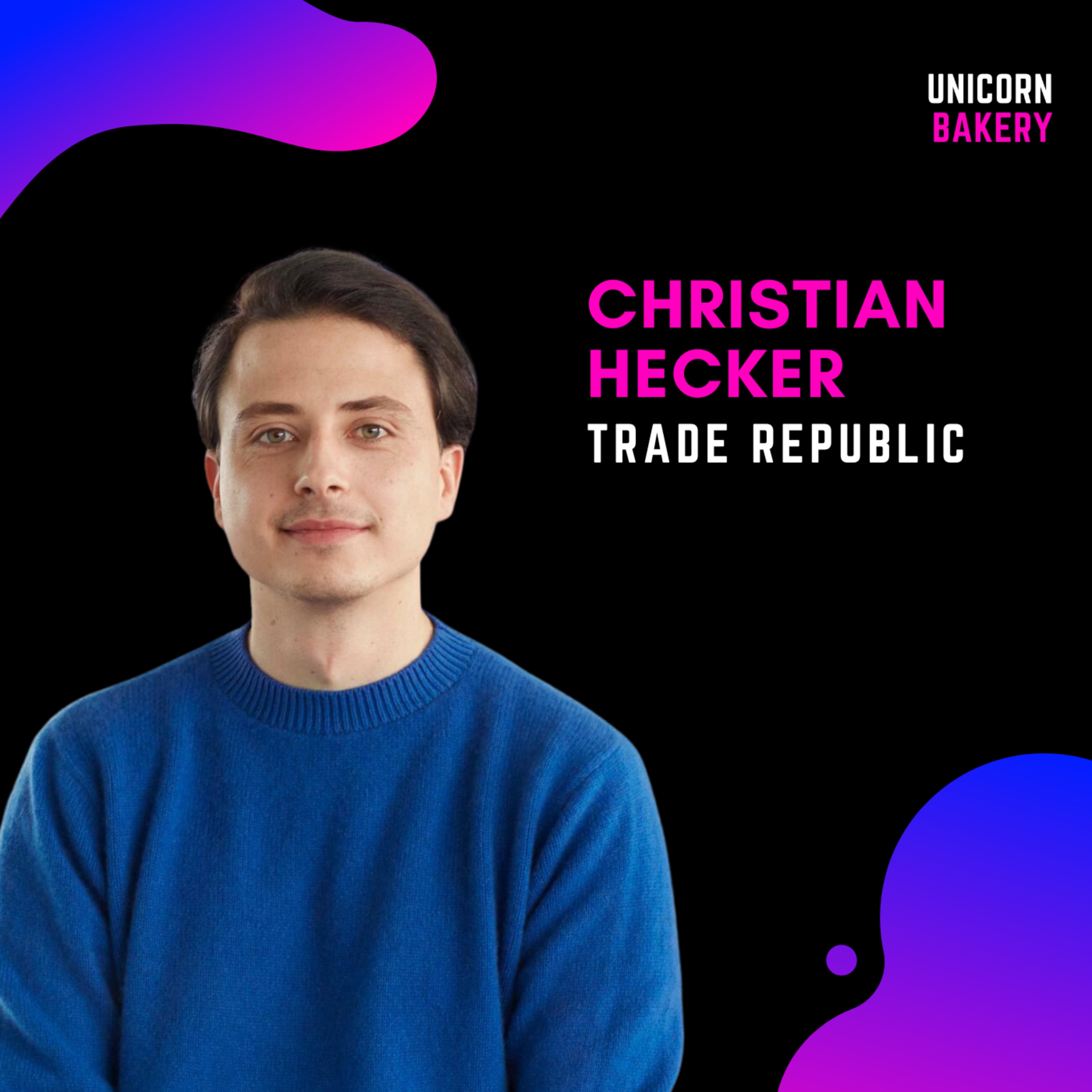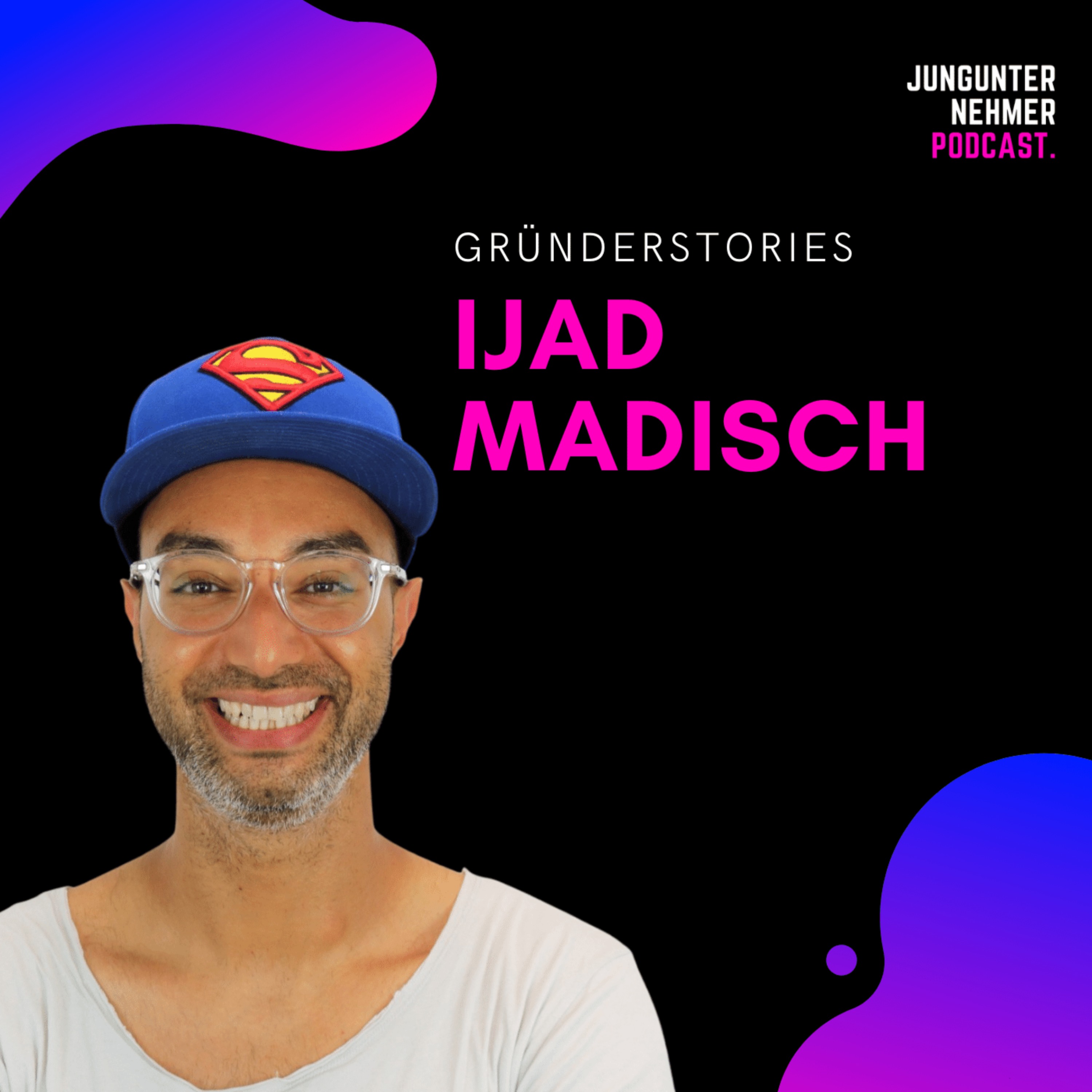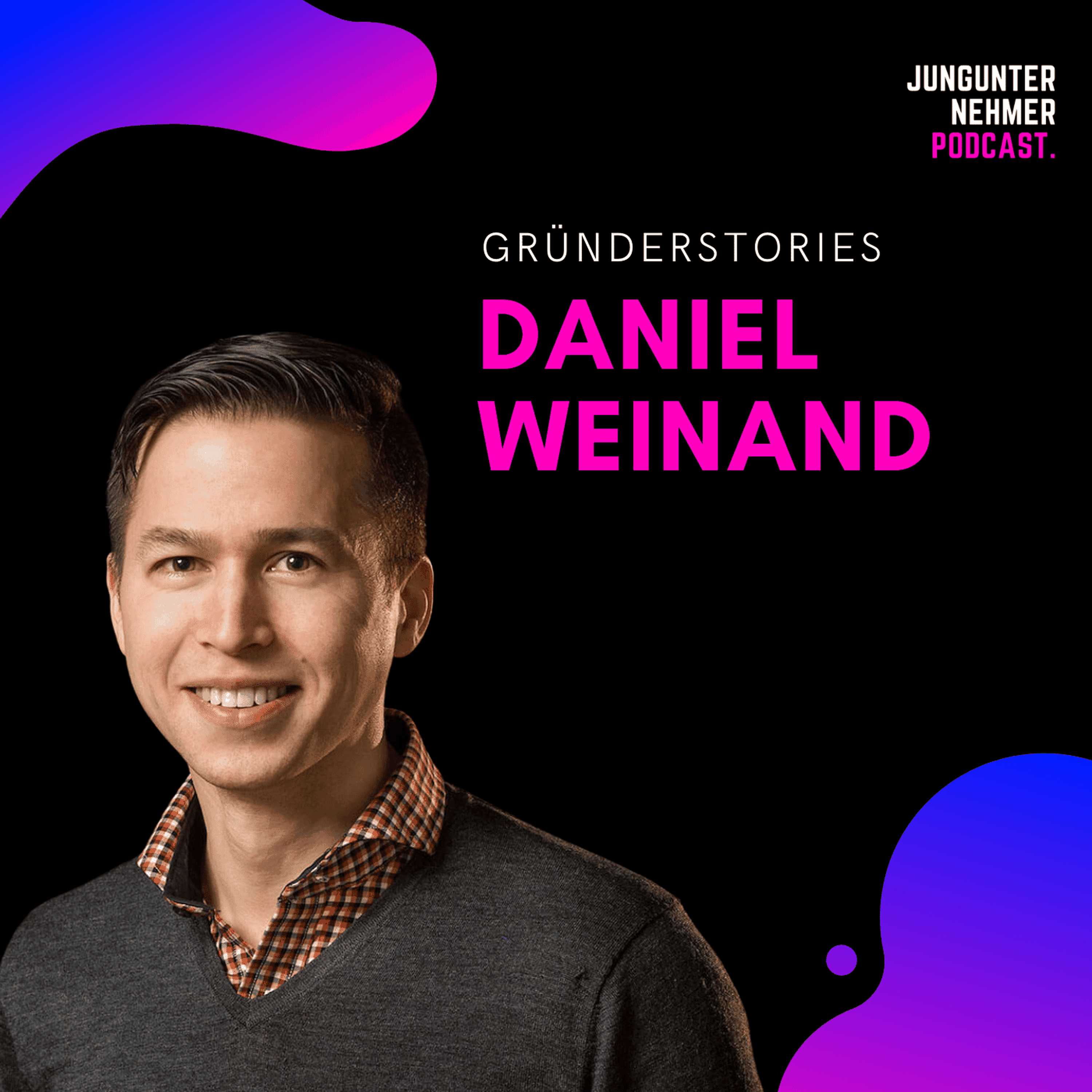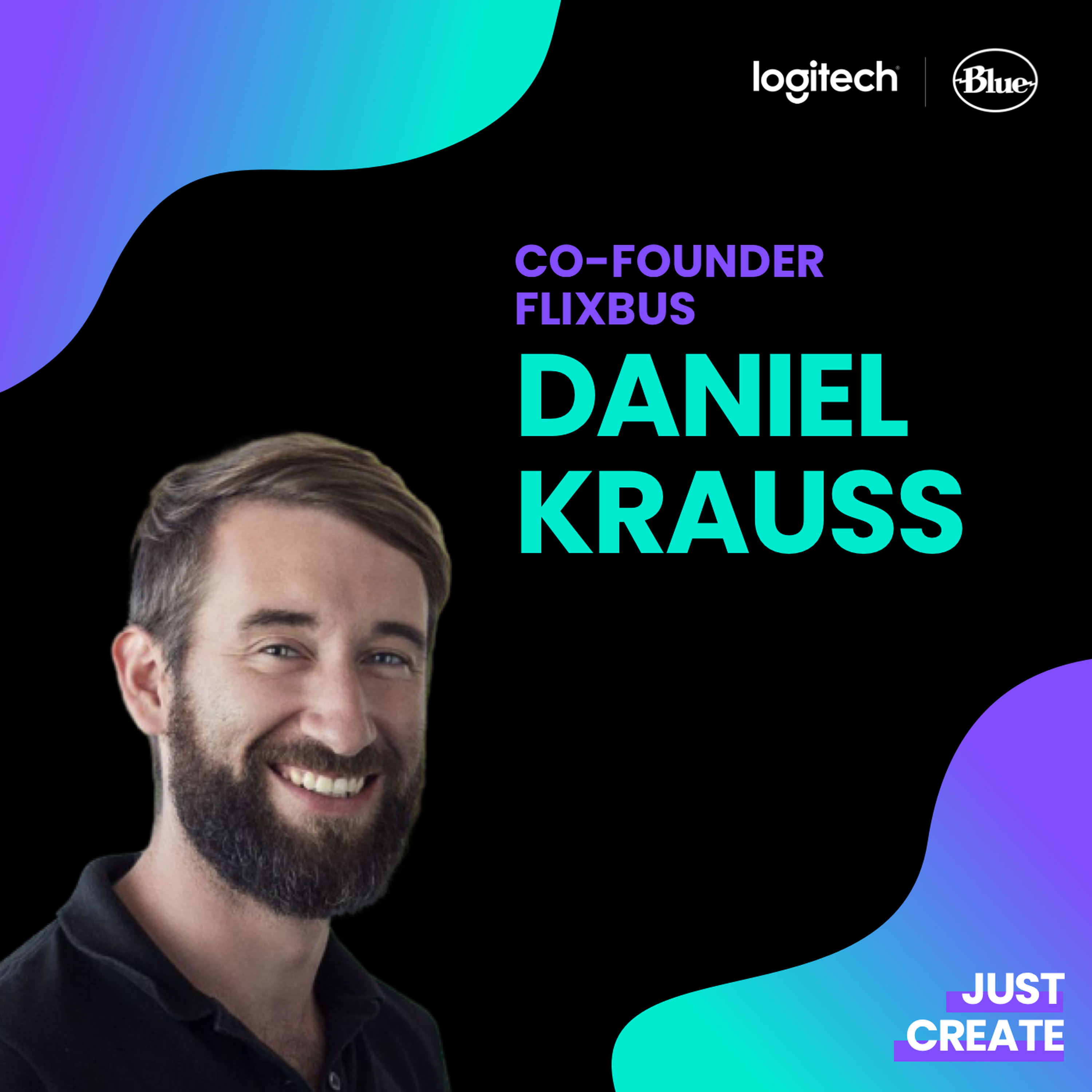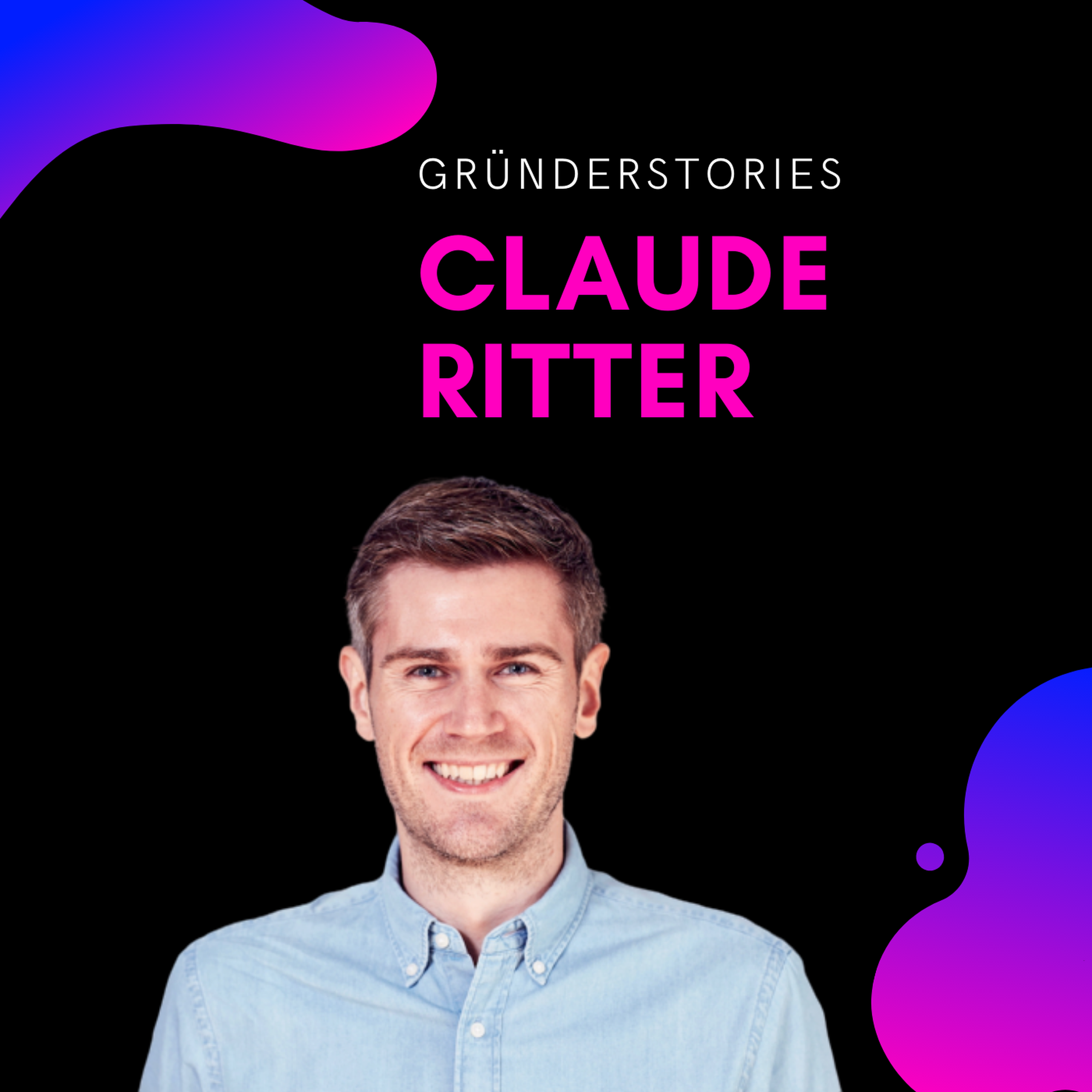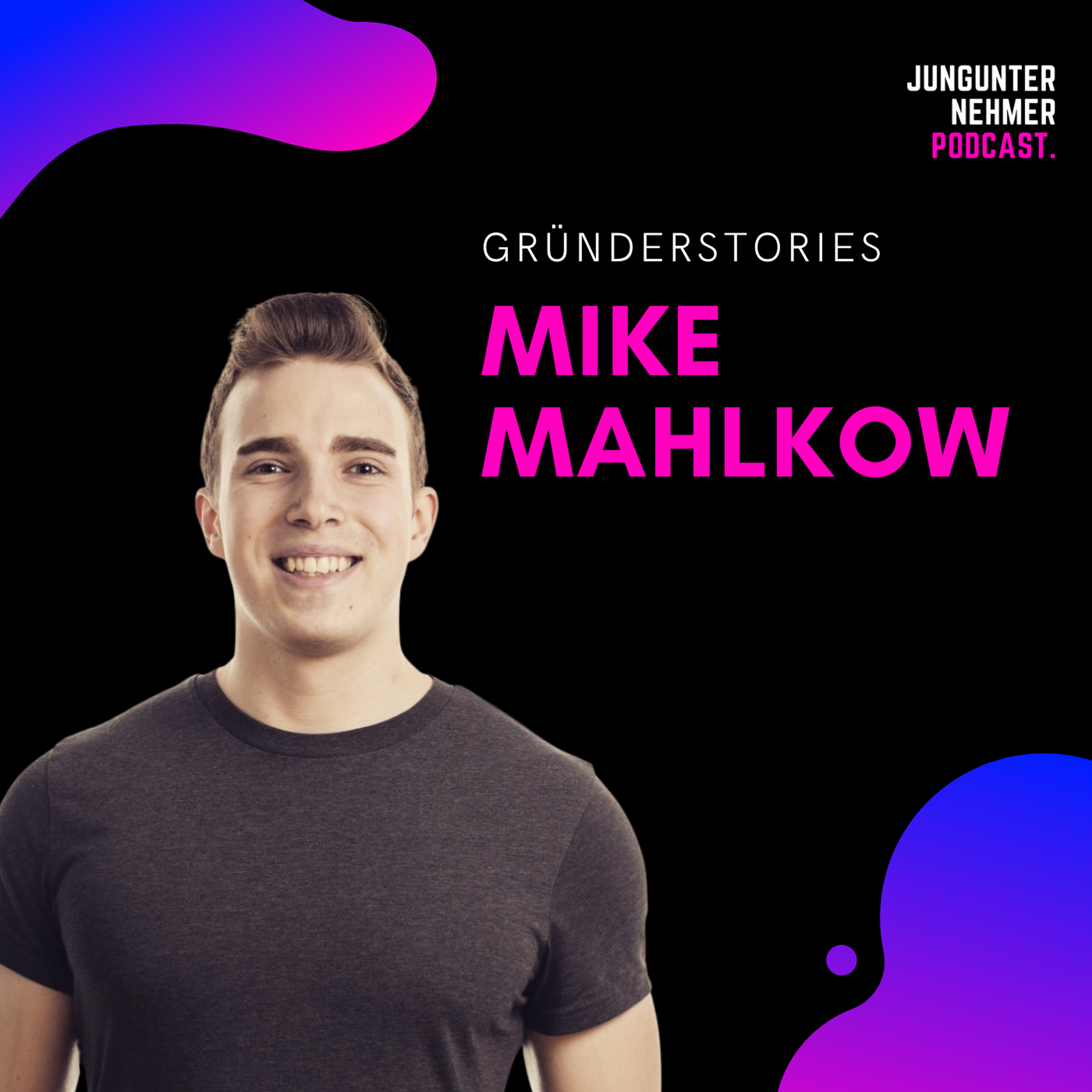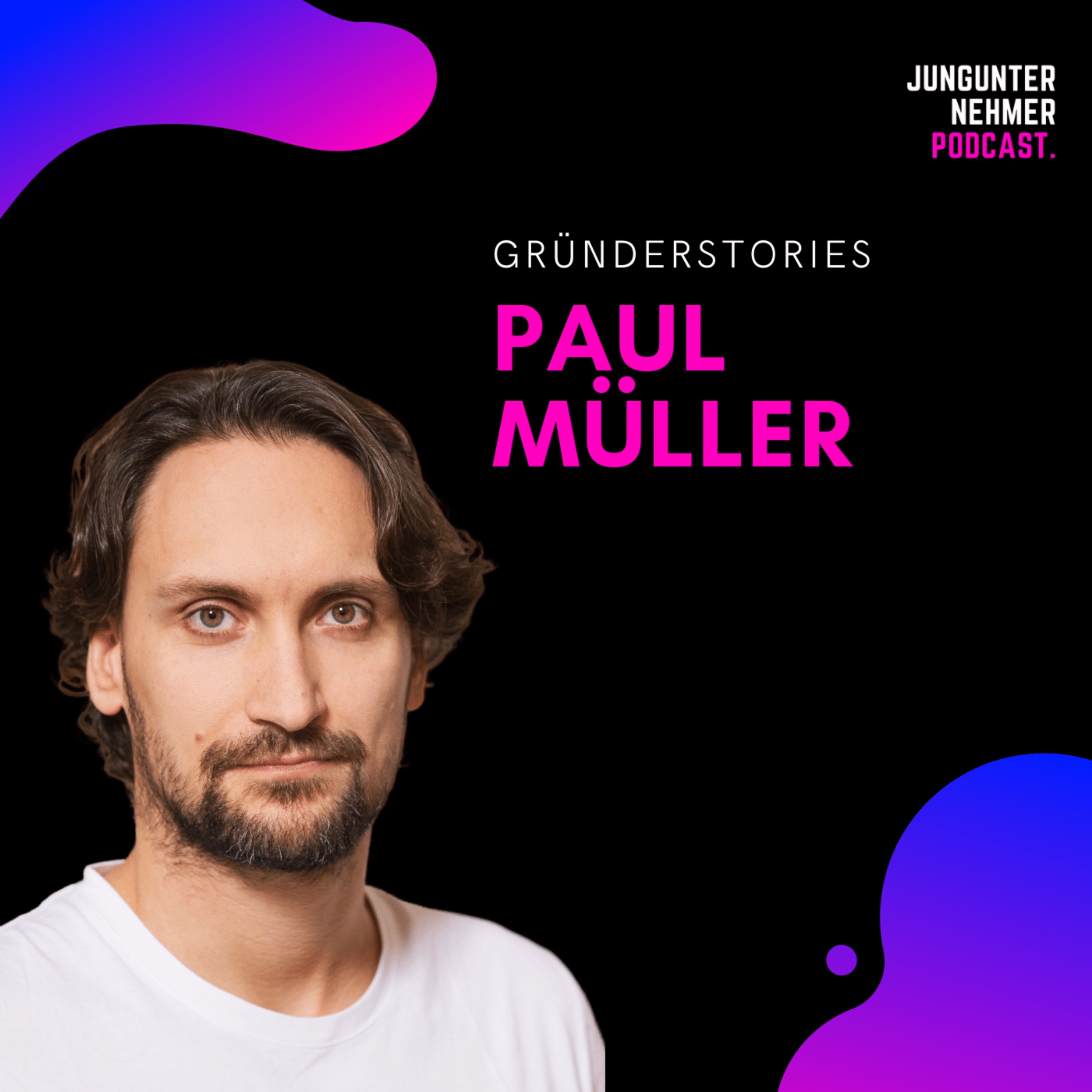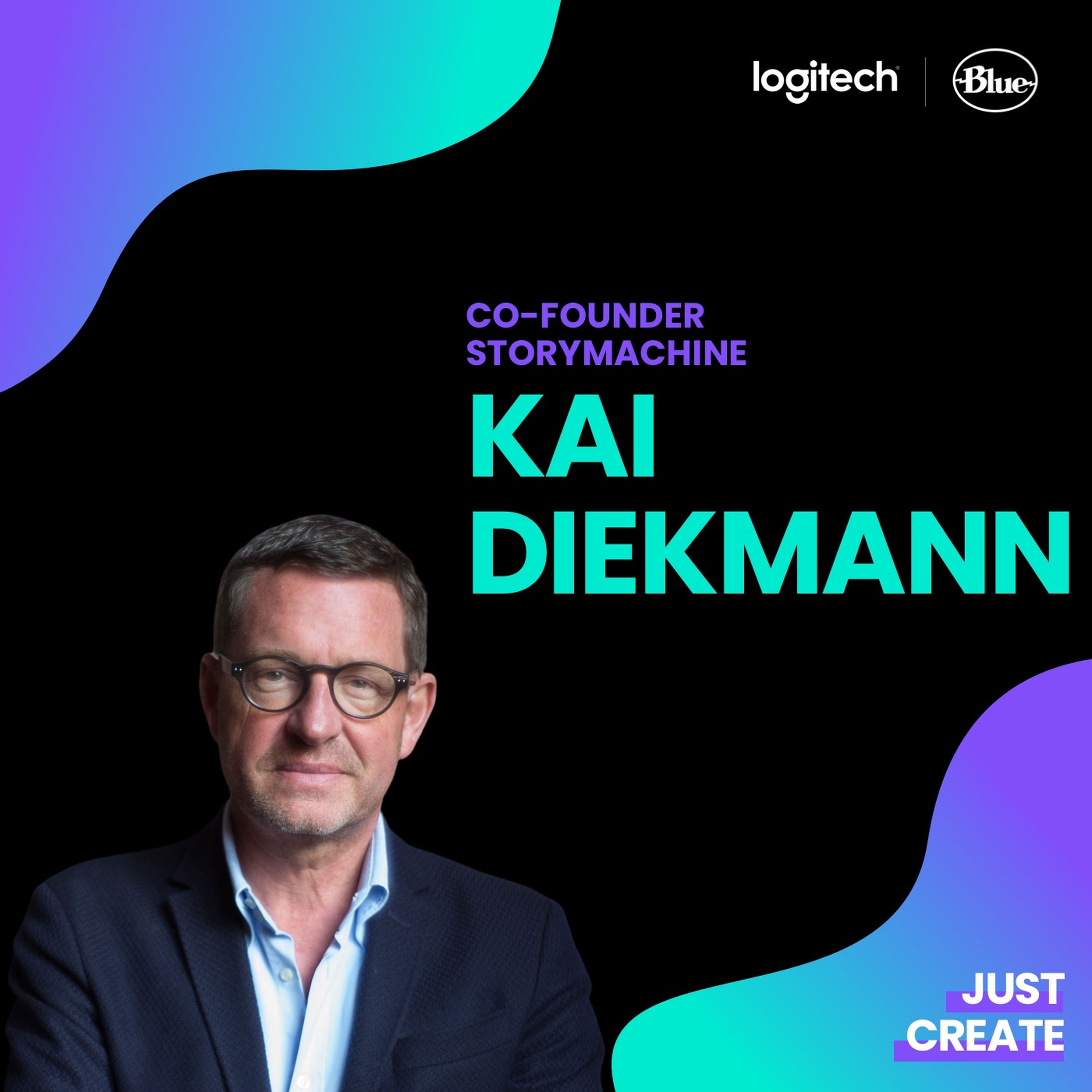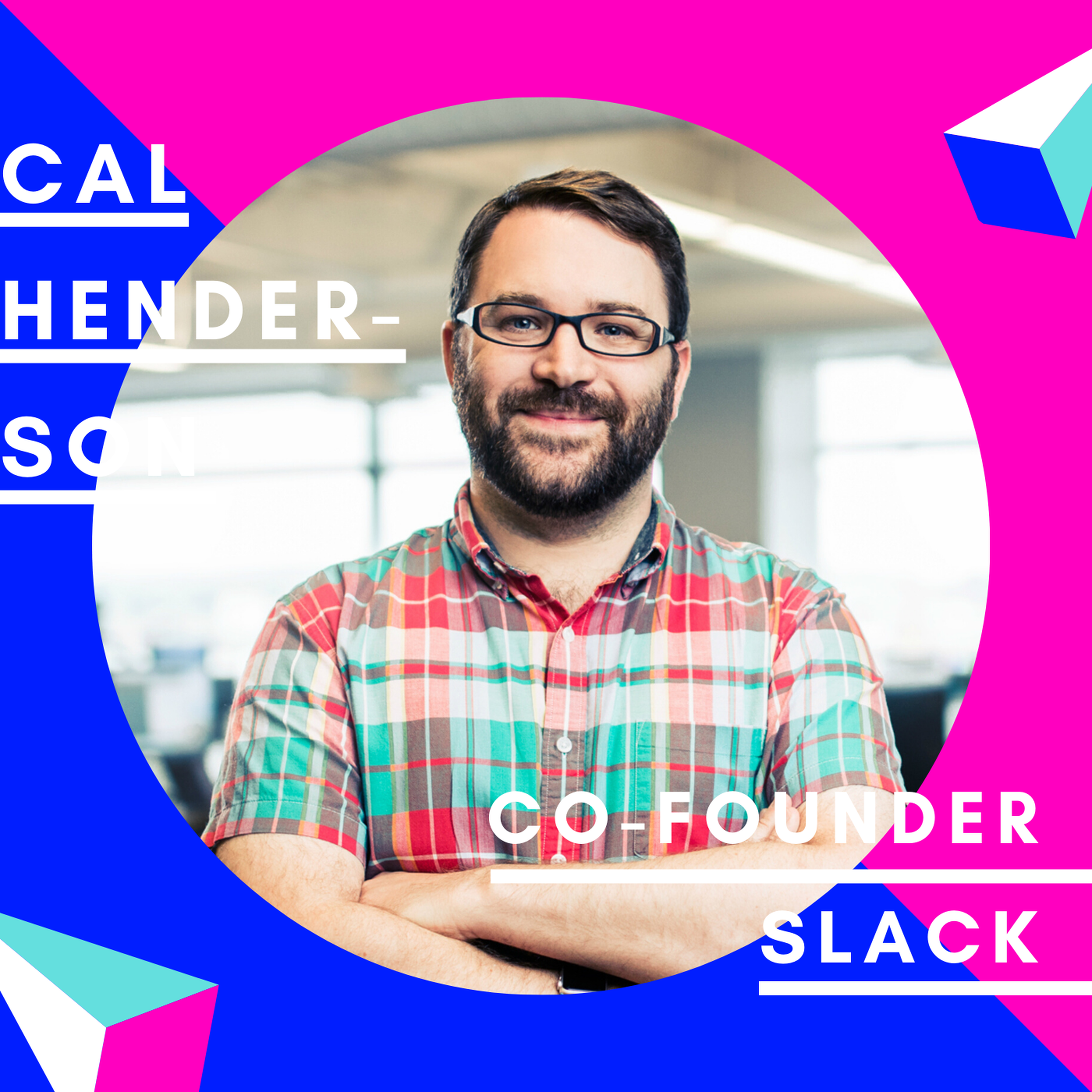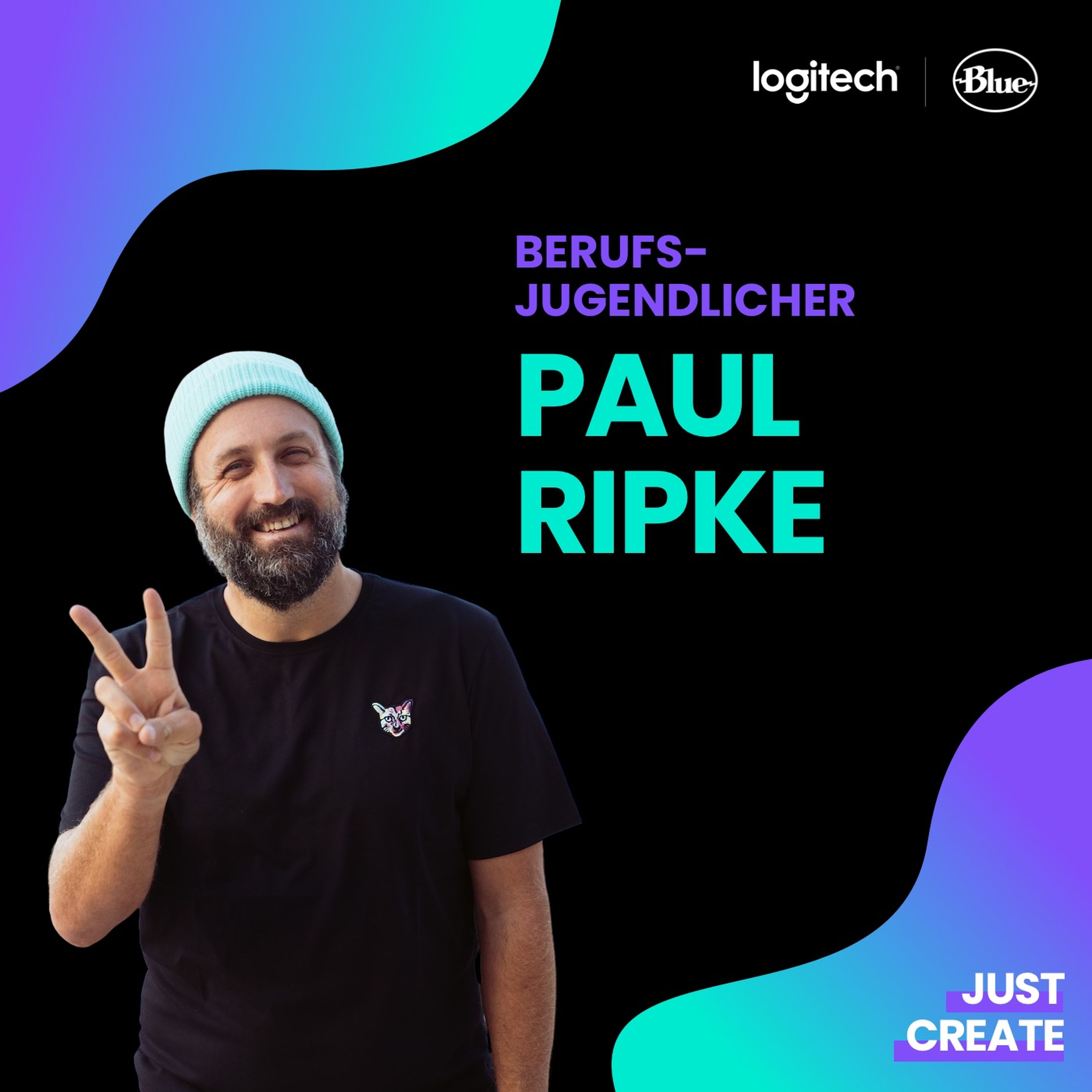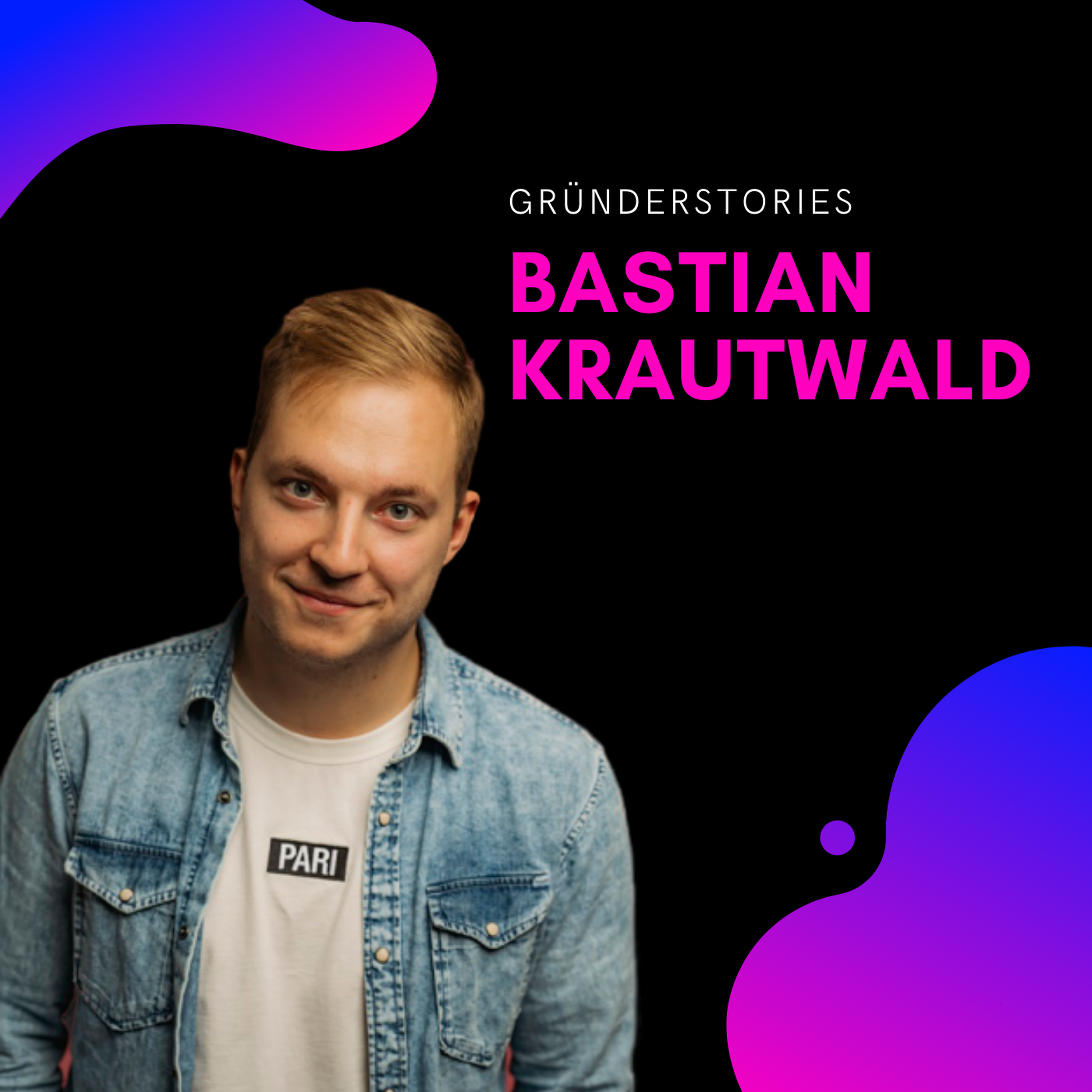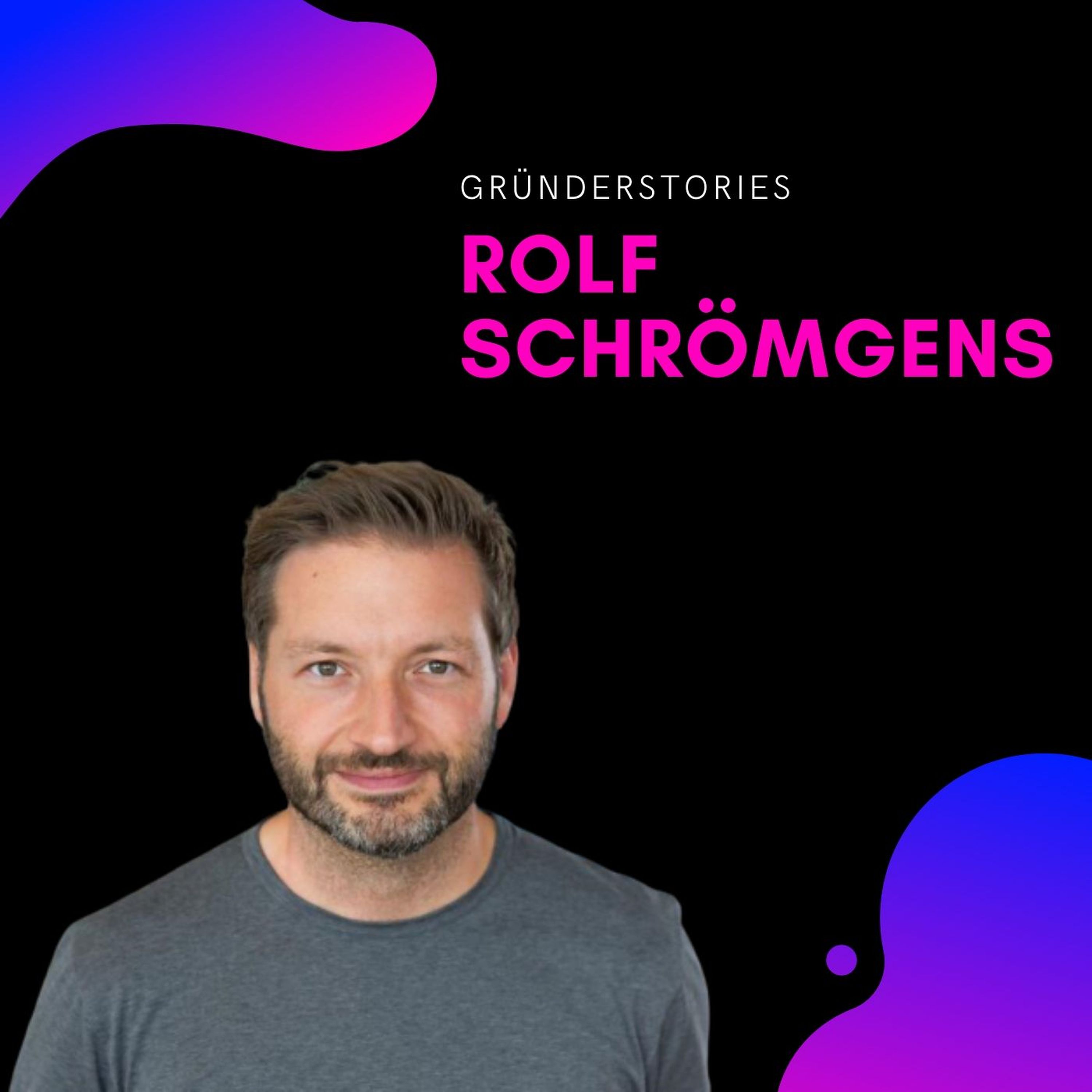The AI Playbook: Richard Socher’s Guide to Building a Successful AI Company
Richard Socher, zuletzt Chief Scientist bei Salesforce unter Marc Benioff und einer der renommiertesten KI-Forscher weltweit, hat inzwischen you.com gegründet anstatt bei einer der großen KI-Firmen anzuheuern. Richard ist der Überzeugung, dass er damit mehr positiven Impact auf die Menschheit haben kann.
You.com erreicht inzwischen Millionen von Nutzern und gibt dir als Nutzer die Möglichkeit, auf den neuesten Modellen basierend zu arbeiten.
Richard spricht über den Aufbau einer KI-Firma, die immer am Rande der Innovation arbeiten muss, wie er Research Teams heute lenken würde, wie du als Gründer herausfindest, welche KI-Tools dir wirklich weiterhelfen und wie er selbst privat und im Produkt über Priorisierung nachdenkt.
Das Gespräch ist für mich besonders beeindruckend gewesen, da Richard in Dresden aufgewachsen ist und früh ins Silicon Valley gezogen ist und (nicht nur) von dort aus eine absolute Koryphäe für künstliche Intelligenz geworden ist.
Was du lernst:
- Wie evaluierst du welche KI-Tolls dir und deiner Firma wirklich weiterhelfen?
- Wann macht es Sinn, eigene Leistungen inhouse zu entwickeln vs. Leistungen outzusourcen oder einzukaufen?
- Wie kann ich als Gründer herausfinden, wie viel Geld ich wirklich raisen möchte/sollte?
- Wie kann ich mein Energiemanagement als Gründer optimieren?
- Welche Qualitäten sollte ein guter Mentor haben?
Weiterführende Links:
ALLES ZU UNICORN BAKERY: https://zez.am/unicornbakery
Richard Socher:
LinkedIn: https://www.linkedin.com/in/richardsocher/
Website: https://www.socher.org/
you.com: https://you.com/
Unicorn Bakery WhatsApp Broadcast: Hier erfährst du alles, was du als Gründer wissen musst: https://drp.li/jrq5S
Unser WhatsApp Broadcast hält dich mit Einblicken in die Szene, News und Top-Inhalten auf dem Laufenden.
Marker:
(00:00:00) How to evaluate AI tools
(00:24:18) Will AI and LLM wrappers be valid businesses?
(00:28:05) Product decisions: Building things inhouse vs. implementing things
(00:31:40) How to size funding rounds
(00:36:41) you.com team setup & how to run high performing AI research teams
(00:41:16) Why is it more impactful to build you.com than joining OpenAI?
(00:46:01) Energy management as a founder
(00:55:15) Prioritization for founders
(00:58:36) What makes a great mentor?
(01:03:14) What is the easiest way to try you.com?
Richard Socher is one of the most renowned artificial intelligence researchers on planet Earth.
He cited hundreds of thousands of times. Okay, at least more than 100,000 times.
He sold his first company to Salesforce, was the chief scientist at Salesforce,
and led a research team for years before he decided to build his own new company.
A lot of the things that we see currently developing in artificial intelligence,
like LLMs, are based on some of the research Richard did. And currently he's building his own
chat-searched base called u.com, which helps you on the productivity side, on the research side.
You can always use the newest model. We will talk about this later.
And it's interesting because Richard is part of a lot of interviews, and it was hard for me to
figure out what to talk about. That's not like the obvious artificial intelligence stuff only.
Of course we talk about that because it's super interesting and super relevant to see
where one of the most renowned researchers and now founders in the space thinks this whole space
is going, this whole industry is going. At the same time, I thought, okay, how can we talk about
something that's a bit different than all the other interviews? We will come to that in the later
part of the interview. And somehow I think I got it, but it was not that easy. So we will talk about
development in the artificial intelligence industry. We will talk about building an AI company,
how to evaluate tools as a founder. Like when I'm thinking about how do I personally become
more productive due to AI? How does my team become more productive? How do we leverage it as an
organization? The framework of evaluating tools is super important. That's what we will talk about
as well. And we will talk about Richard's productivity, energy management, because as a
founder, it's constantly about figuring out how to be in your best performance on the productivity
side and also on the energy side and making decisions. So without further ado, I'd say we
start into this episode of the Unicorn Bakery. My name is Fabian Tausch and here is Richard Socha.
Thanks for having me. It's such a pleasure being here and driving out here to your place and
knowing that you are building a lot of great stuff that also I think already millions of
users are using with U.com and I tried it more and more also for this podcast because I thought,
okay, why not use your own tools to understand how and why you became who you are today,
but also figuring out, okay, how can I use it for podcast research? I think one of the topics
that I would love to start with is assessing AI tools in general. I think from a founder
perspective, from a personal perspective as a founder, how do I become more productive using
AI and leveraging it, but also using it for the team and then building the capacity inside the
team to actually assess tooling and know, hey, is this the right thing that we want to use right
now or do we have to switch and stay on top? So I know it's a very open question, but how would
you or how are you thinking about tools if it's the right thing to implement and if it's the right
thing to stick to at the moment? Yeah, it's a great question and it is very broad. I think
at a very high level, every company has to decide and understand if they're in a space that will
in the next two or three years really fundamentally shift because of AI. Like if you're a car company
and your car doesn't have driving assist, self-driving features, I think your car is going
to be, your entire company is going to be in trouble and you need to have, you need to make sure
you have a team that really expands and owns part of that thing that is core to your industry.
I think if you're in service and you often have people respond to customer questions,
you need to fundamentally rethink your business and ideally help your people right now to learn
new kinds of skills because service will get massively automated in the next couple of years
and we're seeing this already now in many companies in that space. I think that is one of the extremes
and like if that's the case, you really need to just rethink your company and that's scary and
it's very hard to transition, you know, you have hundreds of people doing a specific type of work,
if that work can be automated and you don't, others will and your company will just at some
point like run out of business and so I do think that is the first bucket. It's like massive AI
disruption. The second one is that AI is already helping almost every function of a well-run company
to be run more efficiently and so if you're in marketing and you want to run a campaign or
are given a product description and now have to write a bunch of tweets and LinkedIn messages
and create TikToks or whatever it is that you do in marketing, you should probably be using
a large language model, a conversational AI assistant to help you kind of work through
the right messaging for that and get ideas more quickly. If you're in sales and you need to do
a bunch of outreach, you can already have conversational AI assistants that help you
with more personalized outreach for any individual or any company. You can pick if you're an account
executive that is about to go into a meeting with another company and you want to be well-prepared,
you can already have an AI assistant give you an update and a brief and like an executive briefing
doc which in the past only execs could afford to be written for them by other people. Now any
user can do this and then we're seeing this like sort of assistant space actually edu.com
more and more as our future too because while initially we started to build a search engine,
there's sort of a tough truth which is the simpler your question and answer is,
the less likely you can be 10x better than what Google does. If you just ask like how old is Obama?
Google will give you the answer within a second, we give you the answer within a second
it's impossible to make that 10x better but if you ask a question like give me a briefing doc for
a company I don't know HubSpot or Salesforce, I'm about to go into a meeting with this person like
tell me everything I need to know like what's their current stock situation like any major
acquisitions recently anything related to my product that they already announced like and so on
any partnerships and like you get that kind of brief that is like 50 different Google searchers
maybe at least 10 and now we can actually be 10x better to help you prepare for that. If you're
student and you have a pretty complex physics question and you really need to understand
a bunch of different concepts and how they put together and then do some math and then actually
like get the solution from that math, we can be 10x better easily on you.com in our genius mode that
will program for you and run that code. So there all of a sudden we're realizing that really the
chunk of search which is partially overlapping with search currently do but it also expands no
one would ask like give me a company brief about this company to Google because they know they
wouldn't get a real answer from it right but write me this essay about the Peloponnesian war and
like getting like all these nice different sections of it no one would ask that to a traditional
search engine because they know they wouldn't get a good answer so we're expanding what search does
and that is that expansion is especially deep in the productivity space and so yeah u.com is
moving more and more into what we call a conversational AI assistant for productivity and
especially productivity of knowledge work. Knowing that you're on the one hand using your own tool
of course with with u.com but also are probably deeper in the space than anybody else on earth
having seen and tested and worked with so many great great teams how do you evaluate tools like
what what because from a psychology perspective every human has the fear of missing out and
thinking oh there are 10 tools for the same solution and everything all of them say they
can exactly do the same and they're the best how do I find out what's the best and is it like how
do I find the right let's say formula and equation between testing everything and figuring out what's
like the 0.1% best tool versus okay I just know I'm 10x better with one of the tools and then also
not getting stuck in all the opportunity that's out there. Yeah yeah it's a tough one in the sense
that there are a lot of tools out there right and it's hard to know I do actually think that on a
fundamental level these conversation AI system that search for you do have help you actually as
a general just meta way of answering a question use those tools to help you do all the research and
go through a bunch of things online a bunch of different websites and then summarize them for
you so that's that's one thing I do think it does help to be on Twitter or X there's a lot of
interesting stuff going on there and you can kind of see some interesting trends there but it's
also clear and then maybe I'll just talk about exactly the space that I'm working in right now
which is these conversational AI systems for productivity there's a lot of snake oil and
there's a lot of marketing hype as almost a new word that kind of makes sense but yeah
overhyped marketing where people say for instance we launched citations in these large language
models so you know where a fact comes from and when you click on a citation especially in our
research mode you will see it scrolls down exactly to where it found a fact that it said was true
in the answer so we had some companies that ostensibly copied that feature but then we're
like wow they got this really fast and so we started analyzing and actually doing research on it
and looking at how often is the fact actually mentioned in the citation on that website that
it says it is a citation for and realized some of our competitors just like half of the time
they're just random links behind sentences that have nothing to do with one another like okay so
that kind of reduces the trust in our whole space and it's like saying this is a citation but it
really wasn't and so most people don't have the time to to actually do this there are a few folks
that try and personally like if your company your startup your career your grade really depend on it
I encourage you to actually go and do some of these studies yourself like take 10 20 examples
and actually compare like how often can I trust this source versus you know this other source or
this AI assistant or not so actually doing a little bit of a comparison comparative study is
helpful looking at the data sets that informed other people's analyses there's for instance
LMSIS which is pretty neat it's a company now it's I think started as a research project that
basically creates an elo rating of like you like this answer better or this answer better and then
they compare a bunch of different LMS that is a very helpful way to understand sort of what LM
is really good and how much better is it and so I think sometimes you want to rely on statistics
sometimes you want to rely on on sort of what the tourosphere kind of talks about to stay up
to date but often you have to kind of double check if it's actually just clever marketing
employees because you know it turns out when you run an advertising campaign you have to say this
is an ad but if an investor or an advisor or an angel or just an influencer says I like this product
they don't have to disclose this is an ad they don't have to disclose like I got paid I am being
paid or I invested in this company so of course I like that company right and so you don't you
can't trust everything in the tourosphere but it is generally still a useful space to explore
new tools and then I think when it comes to again LMS one thing we found and I struggled with
this actually as a startup founder which is the space is moving so quickly and I felt like I have
to keep updating and changing my product I'm not I'm doing something wrong but in the AI space in
particular you just have to roll with the punches if you will you have to basically adapt all the
time like in 2020 we started a search engine that had blue links but also like little summaries and
snippets and we called them apps from people called the widgets within search and as part of that
actually in late 2021 we just double like clicked on this and made sure this is true but yeah
in 2021 already we had the first such AI widget that would use an LM to write code for you within a
search set set of search results right but it was still look and feel more like a traditional
search engine because that's what users said they wanted now we're a full-on like chat first
assistant that the links are by default not even shown anymore the way you kind of expect them from
a search engine and so you have to kind of adapt to this very fast moving space and then for a while
when every new LM came out people said oh why should I stay with you.com there's this other LM
maybe our switch and so we could have said well then we just don't have product market fit and we
give up or something but you could also say well we can just incorporate all these LMS and now
whenever new LM comes out that same day we have it within you.com and then you can try it out you
can compare different modes and different different large language models and hence the crisis became
an opportunity the crisis of oh my god the space is moving so quickly it's very hard well we were
in the only one who had that problem so instead of struggling with a problem that's built a solution
for that problem and then offered that solution to our users and now all the sudden each time a new
LM comes out it's a marketing moment for us and it's actually a positive and so that's kind of
something I'd encourage folks that do want to get into some of these very competitive spaces in AI
now what I would also encourage most founders is to just avoid such hyper competitive spaces in the
first place find a smaller niche that fewer people care about that isn't in the blast radius of open
AI or you don't need tens or even hundreds of millions of dollars and instead you focus on that
niche and then you understand that that niche is adjacent to other areas that you could expand into
and finding that right balance is really hard. Would that mean because I think that's one of the
discussions I hear the most from investors and founders would that mean building
a wrapper and application layer rather than on the foundational side or is that just too easy
as an answer to avoid open AI? I mean that is definitely part of it I think the number of
foundational model companies that need to exist in the world is fairly small and it's an insanely
competitive very capital intensive space and for a lot of these foundational models if that is your
main focus you are likely in the blast radius of open AI and they just have so much momentum right
now a lot of incredible people a ton of funding and everything like it's very hard to compete.
Now you know it can make sense if you feel like it's not a big enough focus for them for instance
large language models you would think like don't train another large language model right but
if you focus on a particular vertical or a particular language where they really just
don't have enough training data and they're not focused enough on it then you could for instance
train another LLM just for one language assuming that language has a large enough market and there's
enough interest from companies that you want to really be good in that language and you think
based on your analysis that their answers aren't good enough in that language so there's one company
for instance called Upstage we actually just recently incorporated their LLM into you.com
that offers LLMs for Korean and Japanese and I've been told I can't read Korean Japanese but
other than like a few characters like it is much more fluent and feels much better than
chat between answers which feel weird and a little bit off and so that could be a niche
but you know it's also complicated like maybe at some point opening I will just add more train
data in those languages and do get better in that as well so that's one way of finding niche and then
of course you mentioned the application layer I do think that is where a lot of the exciting
low-hanging fruit is and you just have to be really clever about identifying how low-hanging
the fruit is because if it's so low that there are like 50 other versions of what you're doing
that's not ideal either but if you do have some industry expertise I think eventually the LLM
sort of part of your layer will look and feel in terms of startup sense more and more like a
database layer in the sense that we all need a database you want the right database for your
tool like you don't like if you're a small project you have a couple thousand users you don't need
like some massive Oracle database you can just use an open source MySQL database and probably get
a good enough solution but ultimately the success of your company matters less
and depends less on what database you use but more what you actually put into that database
right and how you use it how you actually like build the UI UX the speed of your experience
the sales marketing distribution channels that you have the partnerships that you built
and and all the accuracy that you know actually usefulness of your product to a particular group
of users and so I think in that sense yes application layer is where we will see probably
thousands of unicorns coming up in the next decade and there will be only a few
fairly large ones on the foundation side
I think that's so interesting because so many founders and also investors think about hey is
it dependable enough enough to build an application layer and because I think we saw a lot of
like one of the examples might be Jasper AI where they just try to give you more and more
marketing text material and and help you with creating those texts and then it was quite easy
for open AI and now chp t to do the same so I think the further you're away and that's what you
said from the core focus and and cosmos of large language models and build an application layer
with a bit more or different focus and a bit more niche focus that
makes it harder to just get run over and let me give you an example where it worked better
one company we invested in is called ambience they just raised a very large round of some great
vcs and what they're doing is medical scribing so when you're a doctor you talk to a patient
the AI will transcribe the conversation and then make recommendations for things
that is technically also a wrap around various LM and in some cases even open sourced
speech recognition models and yes like open AI has built even better speech recognition models
but that just benefits that company and open AI isn't going to go into hospitals and build a
solution that doctors can actually like just run and purchase and it's a compliant with all the
regulations that you have in healthcare and then train on particular conversations to say oh based
on this conversation this is the treatment that you might want to actually do and here's how often
a treatment was given and you you built a lot of capabilities around and a go-to-market motion
with healthcare companies and very few of them will be able to take the LMs and the underlying
APIs and so on and put a proper product together the way ambience healthcare did which full disclosure
is one of our portfolio companies at AI adventures and so that is an example and even for us for
instance we found that we were the first to connect a large language model to the web so that it has
citations and it's up to date and it can be more accurate and while opening I did kind of copy
that feature a little bit they're not really focused on giving very fast answers with lots
of citations and the accuracy is actually less than half of ours in the third independent trial
that we did you know as an AI company we need to know what's real and so we pay this company
called invisible to run a user study and they are somewhat to my surprise found out that we're
actually much much more accurate when it comes to yeah just factual accuracy of of answers and so
while it's sort of adjacent we are so focused on these accurate well-sighted answers that now we
have biotech companies we have universities we have fintech companies that are coming to us and
they've compared for better for worse and they didn't come to us first right they usually have
heard of chachi bt already they compared us to them they're like you are that much more accurate
we now want to work review and so our niche is becoming more and more a place or a niche of full
of knowledge workers who really care about the accuracy and not everyone does right if you're
in general sort of consumer space and some facts are off here and there like maybe this isn't the
best model right because sometimes our research mode for instance is also a little bit slower
and if you just want a really quick snappy answer similar to google you know again i don't think
that's the right place because it's hard to compete on these simple answers and be 10x better on very
short simple answers but again research kinds of related and researchers kind of broadly
construed right can be a fintech company that does company research it can be a biotech company
does research for like specific kinds of proteins or drug side effects and so on or it could be a
university like student or professor that does like research research and so there can be a
niche and so long story short like this biotech company there's also companies in the service
space like actually a lot of companies this is interesting and kind of related to this question
which is in when chativity came out at the end of 2022 you know we're the first bunch of folks
came in a lot of companies thought wow i can just like automate all my service i just fire like
thousands of service for people who write chats and pick up the phone and just have an AI and then
they tried it and it just made up a bunch of stuff right it just really wasn't accurate at all then
like everyone said oh you got a fine junior model so i never thought okay i'll take my own data i'll
fine tune a version of this either with open source or open ai and like other folks and i fine tune
that model of my own data then they tried that and it still didn't work it's still made up a bunch
of stuff and it turns out these models are not perfect at memorizing exact facts and no one to
exactly use which fact or not what really is a much more accurate solution is to use retrieval
augmented generation where you keep your data around you have a search stack that now partners
with the lm stack and then you give a highly accurate answer and and now companies are realizing
that a little bit um but if you're actually in service um even with all of this knowledge
you still need to integrate properly with the right data sets of sales force you still need to
do all this orchestration and knowing like what the right databases to pull into uh you need to
like then read pdfc basically there's still a lot of work uh needed to make it so that a company
can really say i'm going to rely on this for all my service related questions and that isn't just
like a thin wrapper that is a pretty thick wrapper that does create mode to understand that industry
to have all the right integrations uh with the right databases to have a high speed um and just
always stay up to date um and and to make it so that it's a purchasable real product so i wouldn't
worry too much about um sort of the the are you just a wrapper like yes there are a lot of multi
billion dollar companies that are just wrappers around oracle or wrappers around a database
but they're pretty powerful wrappers and i think that's a great comparison to also um
um steelman the argument that it's not like uh you can only earn money on the foundational side
and also only build great companies there i think um anything i actually think a lot of
those companies foundation model companies are in trouble like they had to raise a ton of money
they trained models and then lama three comes out turns out meta has even more money than you
and they open sourced that model and now if you just look at an e-low rating on l m sis and the
chat uh chat leaderboard there and your model is way below lama three you just wasted like 50 to
100 million dollars um and it's all kind of irrelevant now what are your thoughts on um i'm
no or we know that you're german so therefore you probably see what happened what's happening in
europe as well with like mistery ai and then now holistic ai raising hundreds of millions of of
dollars and and seed rounds and then also follow-on rounds do you think that makes sense or do you
think like why would you do that when lama and open ai are already probably far ahead it's tricky
because i'm on the one hand i'm really happy that they exist um i think i think it's amazing what
mistral is doing um and i i wish them all the success uh possible i hope they can find a niche
i hope they can go and do maybe some custom work with certain governments and on certain languages
where maybe they can inch out a real uh advantage um i am worried and i personally haven't made uh
any investments in those companies because uh yeah it is just hard like if you basically the
foundational model um a lot of these models maybe for those not familiar um you have to train them
on a ton of text from the internet so like there are certain companies that provide data that provide
compute um uh that that all make money in the process like in video as a reason it's a multi
trillion dollar company now um but once you have that foundation model then you can fine tune on
top of that and so whenever you're fine tuning a model if now a foundational model comes out that
is more powerful than what you find you and you essentially lost all that money and now you
should probably if you really care about the accuracy fine tune on top of another later
foundational model and we all know that you know lama four is being worked on at facebook meta uh
and and so the fine tuning is often like i think going to be a certain cost for for companies um
that they do it and by the time they finished it it's out of date um and and so you can kind of
decide uh how often like when do you really need to innovate on that foundational layer like do you
really have uh a new kind of sequence um that is so out of distribution for anything that
opening eye can get its hands on uh on the on the public web um that it makes sense so for
instance you train a large sequence model on proteins those are not on the internet as easily
available predicting the next amino acids we have one here on the table um that is is harder
and it makes sense to really train your own foundational model for biology for instance
i hope we'll see more foundational models for physics chemistry biology maybe eventually
combining them all sort of a side project that i'm thinking about um and so it's just as a book
to just describe that idea um but i think yeah most most companies uh most of these open source
companies i wish them best success i do think open source is great i'm glad facebook meta is
open sourcing things i think it makes it much more likely um that this technology gets improved
and that people can play around with it they can make this model smaller and it's something that
a lot of people care about just being able to run a model on the phone personally i'm more excited
about the very frontier of capabilities which are rarely ever on a small device and the first in
the cloud and then you know over time uh you can kind of do more and more work the model the
phones get bigger and better and then maybe you can run it locally but you know most people have
internet access and if you really don't have internet access then it's hard to think of that
as a super valuable user uh to some degree that's worth to do all that effort um or just you know
it might be worth as a non-profit but very hard to run a real company uh for for users that don't
have internet access um in the AI LM space and so i think mostly we can be on the in the cloud
and use that technology and just be at the very frontier of capabilities of larger models so say
i don't know i wish i had something more positive to say because again i'm very uh happy that open
source LM companies and just more LM companies exist and i hope i hope they find their niche um
where they can uh grow uh healthily one of the hardest challenges as a founder and i think
you mentioned some of them in your answer right now is like deciding do i build internally or
do i build on top of things and integrate um other um toolings to be or have like participate on the
upside that others are currently developing but therefore i'm building uh on top of it how would
you decide what kind of feature set functionality etc you have to develop on your own and i think
that's true not only for AI but also for that that would be true for so many things on the on the
tech side and product side but how do you decide which things to build internally and build a team
for and which to buy and implement um built by others it's a great question it's a question that
constantly comes up as you build a tech company um and i almost feel like there are like hundreds
of billion dollar companies that all they've done was find something that a lot of other companies
need and it would kind of be doable to do it yourself it would probably take two or three people
like six to twelve months and then they can probably hack up a word solution that kind of works but
if you're in the valley right two or three engineers for six to twelve months like that can
be half a million dollars uh and so maybe if you just spend twenty thousand dollars on that tool
that you could build yourself but now it basically can have that tool for that cost for like 10 years
and you have it right away and it's built like with a lot more effort instead of three people
it's 30 people and so on 300 and now you can do a really really good job um and and focus on something
else right and and so uh that happens all the time it's it's very hard to answer it in the uh in the
abstract um you know there's payment providers uh eventually you get sort of CRM use cases and
trying to run like campaigns and marketing and uh you have um like infrastructure you know like
data lakes and so on and in some sense like yeah you could probably just have your own
SQL database on some AWS instance you could also have your server like somewhere sitting in your
own data center and you will control the server the the beauty of all this crazy SaaS explosion is
that it does allow you often to just get more quickly to the most differentiated product that
you can build uh and so at a high level uh sort of co level you would just want to choose of like
where to pick your battles sure you could spend time setting up your own server like in some data
center i could set it up at home and try to start cooling your thing you can go pretty low in the
stack and it's all possible but the beauty of of all the abstraction layers that we have in computer
science that i sometimes wish we had more of in biology and so on where you can have you know
experimentation or DNA sequencing or protein creation like in the cloud where you're just
like oh i have this idea and then you just try it out in like some wet lap that kind of has more
automation but in computer science we do have these amazing abstraction layers and so nowadays
like a high schooler can build an app that could scale to millions of people like it's kind of
insane and so i would encourage people to just focus on what's the most unique thing and then
if you have the funding use that for speed oftentimes it does come down to like how much
of your lifetime do you want to spend like being fully bootstrapped for instance and slowly growing
versus just you have less lifetime so you take more funding to increase velocity on on how quickly
you can ship useful products for people let's stick to funding because i think that's an interesting
phenomenon as well because it's like not black and white and i know you love to to answer in and
and and describe the full range so happy to to hear your thoughts on also determining what's the
right amount of funding that i need for my next stage as a venture because i think i see it in
europe a lot that funds become larger there's more money in the in the market at the same time now
it's a hard time to fundraise and especially in europe not sure how it's here at the moment but
still it's not easy to we have like super over subscribed rounds we have like people
optimizing for a large round rather than the terms and whatever like how do i determine
how much money i actually need you know you just have to do a proper financial plan and and you
do want to have some of that and then i think there's sort of two sets of of people there are
people that are in they have so much by association so much goodness for them that vcs think it's a
very it's more likely to succeed like we see this with stanford berkeley phd's from some of the top
labs they can get immediately much higher valuations and then can raise more money and sometimes
actually there are various companies out there who have raised too much which seems like such an
absurd thing to say is like how could you raise too much money but it turns out that not having
a ton of funding makes you very focused on getting hitting your milestone getting to revenue getting
to product market fit and if you have like many things depends on you know your goals and your
ambitions and the complexity of your tasks but for some companies when they have too much money
they just become a little organizationally lazy they don't have this strong fear of like we really
have to succeed very soon and so they start doing other side projects they they're not focused enough
and and it don't get to that revenue early enough and they just keep giving the product away for free
we see this sometimes with our competition like if you can keep the hype up then maybe you can
keep giving away your product for free but you also just don't learn whether you're building
something that people are willing to pay money for when you're giving away your product for free
right and so that learning is actually very very helpful and powerful and so it's it's an interesting
balance on a lot of fronts but yeah i think you want to raise enough to be able to hit a milestone
that when you think you can hit when you you know when you hit that milestone you think
there will be investors who don't want to fund you for the next set of milestones and
yeah some companies can raise even more than what they need and in some sense i understand why
they're doing that because that means that they have more shots at goal right they don't have to
shut this company down and start another one they can just like pivot or change something about their
approach and then try try something else so if you can raise more and more
good luck like try and and then do it but then you have to be insanely disciplined and not
get lazy as an organization and so in some sense uh i do think europe often uh doesn't raise enough
like they raise tiny rounds it's very hard to really hit major milestone and think about big
enough projects with knowing that you got funded quite well with u.com at the same time assuming
that you're part of the subset of founders that can raise on higher valuations and could raise more
money due to your background and trajectory throughout the years how do you sell and how
do you hold yourself accountable to what you said yeah so it's kind of interesting because in the
space of of ai companies that build pretty frontier technology right the first to you know
have lms with proper citations and high accuracy and so on you could also argue that i hadn't that
didn't raise enough right i raised only 20 million dollars in my seed round i've had friends and
co-workers and former students of mine who raised a hundred million dollars in their seed rounds and
i thought maybe i shot too low so it's a which is a different yeah it's a small space of people that
can and have done that and yeah i sometimes feel like i actually didn't raise enough to build
maybe also foundational models before anyone else had built them all right because i had done
research ahead of everyone else many years and that's it's a very specific to me kind of situation
but you know we are now very focused on revenue we make millions of dollars in arr annual recurring
revenue and and we we do have a lot of pressure because given how big the ambition is of you
know replacing partially google but also expanding now more into this productivity space of when you
would have used a search engine and now instead the ai searches for you summarizes and then does
productive work for you that is a massive massive opportunity in space and it does require more
funding to compete with some of these really large companies one of the things and pillars is having
money the other thing is like hiring the right people and when we look at your company
um how is the diversification of roles like how many researchers and ai um engineers do you have
how many um do you have people in sales do you have like when we look um at your company who's
working um at u.com right now um it's you know usually uh for smaller younger startups it starts
with being majority engineering all right you just need to actually build something uh and you
don't want to have too much overhead too much process and so on and then as you grow uh and you have
you know and obviously and if you start the b2b company and we're transitioning more and more
into this enterprise space um uh you you do need to have sales uh and marketing and at some point
you want some product oversight and understand sort of what users want and and manage manage to
the product and the processes and then you know you grow up and you have like hr folks and recruiters
and things like that um uh roles like that uh and um yeah that's that's basically uh how it
would structure it you sort of start with at least technology startups you start with mostly
engineering and then you start transitioning and at some point you probably get to like a 60 40
percent like 60 percent on engineering and the rest um are in sales service marketing
distribution uh and and operations quickly diving into the AI research side here but um
what you did for a few years is like building probably one of the best AI research teams
out there um what would you say makes um a high performing AI research team and how
or does it even differ from a high performing engineering team a high performing um company
in itself yeah it's actually really interesting a question in the sense that I think a lot of
people change their mind because of open AI it used to be that you want to give your researchers
some freedom you want to publish um you want to verify with the community that you can do
amazing work and in a weird way open AI despite the name kind of showed that doing more closed
source engineering heavy AI projects um that you don't tell the world about but you let them use
their end results created a lot more impact um so you know it was at a dinner a bunch of other
very senior leaders who had run like in some cases research organizations institutes
nonprofits um with hundreds or even thousands of AI researchers and in some sense they all felt
like well open AI kind of overtook us right and so one of the brilliant things about open AI
was that instead of letting people work on their own projects and hiring a lot of smart
PhDs who have all kinds of interesting ideas for smaller projects they just said we're going to do
fewer things with massively more scale and we hire a lot more engineers to scale up these models
rather than a lot of clever PhDs with lots of ideas and so there's some simple things like
take existing models and scale them up massively larger data sets more parameters more GPUs more
parallelization uh bigger uh everything bigger and and it turned out that a lot of the ideas
were already there like you and probably even you could have just taken lsdms probably would have
been like five eight x the engineering complexity but you probably could scale those up also pretty
well we had some like quasi recurrent neural networks qrn n said we invented that have even
more parallelization you can probably take a lot of those models scale them up uh fiddle around with
them and then uh you know fine tune uh hyper parameter optimize and whatnot um and get to
similar outcomes and a lot of the technology and the fundamental ideas of training in neural
networks having an end-to-end training where you have some really powerful objective function
and you just have a ton of data for that those ideas were all around for quite a while um and
they just needed to be scaled up further to hit certain thresholds and then uh have these
incredible generalization capabilities and so my answer now today's would probably
be different than it used to be when i ran a pure research organization which is give people less
freedom like researchers and focus on fewer larger projects uh maybe one in the beginning
at most three or so for for most research organizations but then scale it up a lot more
a bit more on the personal side because you are quite um open that you always think about
the impact you can have on on the world and the question that i had in mind when you talked about
open ai and the research part that you did at salesforce and um was why did you decide to build
your own company then for example um trying to involve yourself in one of the foundational
models for example even more even when knowing and i think many in the audience don't know that you
that a lot of the open ai work also is built on top of research papers that you did in the
in the earlier days so therefore um knowing that you're already a part in the
story and history of foundational models but still why did you think it's more impact to
go for example building u.com rather than trying to um help one of the foundational models like
open ai become better more accurate etc um i guess part of me felt like there's sort of the
research world of like actually identifying those ideas on 2018 when we invented prompt
engineering or just we had this idea and it's actually cited by open ai and their early gpd
papers um this idea that you can have a single model for all of nlp which was you know very much
not standard then the paper got publicly rejected famously i talked about this in my ted talk um
and i felt like once we put that idea out that hey you can just ask one model all these different
questions and that's like that's the future of nlp those were intellectually speaking uh
foundation speaking like the main ideas and the rest is quote unquote just engineering but that
just engineering is basically a lot i love the work and where a lot of that magic happens and
so you can just do engineering and scale better in companies and you just take those ideas and
apply them to the real world scale them up that is often done better in for-profit organizations
rather than research organizations maybe that can change right maybe research organizations can also
get back to more um moonshot like approaches where you have fewer people uh like sorry more
people working on fewer projects um but certainly that wasn't the case and um yeah i i you know
when we had prompt engineering one of the many tasks we did uh or had in our backlog uh was
actually like language modeling is another task and we're like ah we should have just really
double down on that and just scale it up more and more uh on those ideas but at the same time you
know if as a researcher you want your ideas to motivate others to then take those ideas and
and build amazing things with them so in that sense it was a huge success now of course as a company
we also want to make a lot of revenue uh based on on those ideas that we brought into the world
I think what's particularly interesting about your life and your day-to-day is that you are
on the verge of uh inventing and researching and trying to innovate and on the other hand you're
also like leading a team and you have to be um at capacity to to um set the vision um hire the
right people fund raise builds um so as a founder how do you handle your energy management and how
do you think about okay what can i do in a day what am i focusing on how do you handle all of that
boy um that's uh yeah uh pretty complex thing um i think one thing that you have to start with
is health um like it's kind of interesting medicine and health doesn't matter and isn't
interesting to many people until you don't have it anymore and then it's all that matters right
and so you do need to stay healthy um i certainly uh worked uh at sort of unsustainable levels uh
several uh years uh of my life um uh that were just so there's too much and it did uh
suffer uh i did suffer in terms of health uh consequences and some simple things like uh
like using a mouse so much i got repetitive strain injuries uh and uh and and like i had to then i
was like i didn't want to stop working so much i just learned how to use my left hand for my
with my mouse and i started continued to work and but you know you can only go so far and as
you get older unfortunately you do have to start managing things better it's just all nighters just
become so physically uncomfortable and painful that you just really don't want to do them anymore
and and you realize like um you kind of uh become less long-term productive and so i think there's
also a transition a little bit uh between an individual contributor who's very productive
and a manager who's very productive and it turns out as a manager you have to pay attention more
to other people and their feelings and your emotions and how people respond to like uh your
your inputs and uh that you give them and so you end up having to be a little more balanced
and more well rested i think then then you could get away with uh as an individual contributor
who's just trying to crank out code um uh or you know work in the lab or or something
and so i guess i i'm not very good i'm trying i'm uh listening to to brian johnson too who
works on like or works on himself and longevity and and like lots of lessons um it's usually
end of one but you know hopefully other people will kind of try out the things that he suggests
and we get a larger sample sizes and it's definitely very interesting and he does talk
about sleep a lot and i certainly know that if i have to get up too early or i don't get
enough sleep overall like i'm just not as good um uh of a thinker um and and so i try to get
enough sleep i try to eat healthy um one thing i learned um is that sugar is really one of the
worst things uh you can do to not just your health but also your mental um sort of abilities uh
i used to have a sweet breakfast this was like over a decade ago now i'm really glad i found this
out um in in my 30s but um uh or yeah in my late 20s which is you don't want to have a sweet
breakfast that's like the worst thing you can do is eat sweets on top of an empty stomach because
then you get huge uh blood sugar rises and then when they code inevitably back down uh i personally
used to get kind of hangry and i feel like i most of the time had enough executive function to avoid
uh like letting people know but like i certainly just had lots of snarky thoughts and i was just
like more easily annoyed um uh and and so once i've learned to just have a couple eggs uh and
and like a non-sweet breakfast um now i just get hungry uh around noon and and i'm just probably
nicer to deal with um around noon before before lunch and so those are all like small things um
and trying uh trying some different health things now um tried recently this like red light therapy
partially for longevity and like increasing healthy like health span but also just being
healthier uh overall so that's a big part of motivation and then of course one thing you learn
is that people can do incredible hard work when they have a concrete milestone and a goal to work
towards to and work together on uh and so setting yourself i personally set myself most of the time
unrealistically high goals because i felt like when i fail with the unrealistically high goals
i still achieved quite a bit of useful things um you know as a phd student i was like
or well as an undergrad i was like i want to get into stanford which i didn't know anyone who's
ever gotten into stanford personally and it just seemed like very unrealistic and you know took
several years to many rejections but i did eventually get to it uh as a phd student i always
hoped to submit two or three papers to a conference and most of like the first two or three years and
i was only able to really submit one and only like towards the end when i you know really had enough
ideas i was able to really become more productive i finally was able to to do it um and then you
know with startups too i met a mind i was trying to build essentially something similar to open ai
but you know it's just like very early didn't know much about company building didn't have
enough of the really smart people also uh in the founding team um the way like open ai had
were just like tons of really incredible people including ilan masco is just an also among many
other things and amazing marketing like genius that uh is able to bring in funding and excitement
for anything he does now and so um metamind was kind of this high goal and we didn't achieve that
high goal but we had an amazing uh exit and acquisition by by sales force and uh that you
know helped uh my career and the careers of all the early engineers immensely um uh at metamind
and so likewise now you know we we set out to try to compete with google and you know we haven't
really made that big of a dent yet uh but we do have millions of users we're making millions of
revenue now uh and we have changed the space uh and it's kind of interesting but uh you know when
we started google hadn't really done anything interesting and important uh to really change
the way we search for a decade and but certainly you know it's not just us right we've done it
lots of people have copied those ideas but this the search space has changed more in the last
couple of years than it had the last couple decades before so when i would look into your
calendar is it mostly meetings is it like blocking out time that you can think about stuff like how
do you how do you mix that i i try to actually have more thinking time uh unfortunately uh it
does get very often uh too booked out um and wednesday is my no meetings day uh it is currently a
wednesday um and you can see that i'm just sitting by myself and thinking i'm like emails is a
constant struggle to just have so many emails uh and that it's just like that could be my full
time job is only answering emails and sometimes you miss an important one you feel bad so trying
to have uh you know help from from my assistant also to just help me go through emails um and
but yeah so there is there are a lot of meetings i do work a lot i end up working most weekends
at least a little bit i i try now that we hit some milestones which i hopefully be able to
announce in a couple weeks uh i'm trying to you know fly a little bit again and paramotor
and and have some have some fun sometimes some distractions to not just always be thinking
about work non-stop um but i do also think i and it feels weird to say that like i don't
want to encourage people to ruin the health um uh in because they're working so hard but honestly
i look back at my 20s i'm excited i was very productive um i felt like i uh achieved the goals
i want to achieve i felt like i had a little bit of impact on the world with my research um and then
some of the applications and spaces i i think will be really meaningful for for humanity and um i
never look back at those days and be like oh i wish i'd gone on more vacations i wish i'd gone to
more parties i'm like usually i look back and i think it's maybe a genetic thing like uh because
i see it differently in different people but i have a selectively positive memory i remember
the good times i don't remember the bad times as much um and i'm mostly happy uh about the things
that i was able to to do um and so i think if you really want to be very very uh successful
you do end up having to work a lot more than most people think is possible and you do have to
put in 100 hour work weeks like very very often um and um i'm i'm trying to optimize my my health
my personal relationships and so on such that i'm able to do that uh and not feel like i'm missing
out on too much you know wonderful wife now and we're like uh happy she's also a startup founders
also working all the time but each day you know we have like a half hour an hour and we can
decompress talk about our days our companies and um and uh and yeah so i encourage everyone to
wants to be successful to have enough of the social life and enough of like a health situation
to make it sustainable um but other than that i don't i say and i feel bad because you know a lot
of people are like oh work-life balance is super important but um if you love what you do and you
feel like there's a big like there's some powerful meaning behind your work like you actually help
humanity become much more productive to learn more to do more research um uh and so on you can
actually work a ton and and it's fine you mentioned that your emails could be a full-time job then
managing like and meetings could be a full-time job then research and innovation and thinking
time could be a full-time job um and i think a lot of founders can find themselves in hey i
have too much on the plate to do everything um i know as as often it's not black and white and it's
a very open question but how do you prioritize i yeah i do i do sometimes say look yes i have a
hundred more unready emails i did a quick clients like i answered most of the important ones and
then i do go back and i have actually a and it's weird i keep coming back to it i tried many times
to digitize this like my main to-do list but there's something simpler and better about just
having it on a written piece of paper in my notebook of like okay really you need to fix
these main three things um i can't quite talk about the exact details but sometimes it's like
you have to hire for this particular role like that is like one of the most crucial things for
your company is to get that hire right um you need to think about this particular partnership
or this particular customer um or this particular technology and how you can like best make that
happen and so you do want to zoom out sometimes and go back and be like yes you can just keep yourself
busy non-stop all the time um and then you become more selective you talk only to like really cool
podcasts and like yeah and i feel bad because like i i feel like i often in my career i you know
there's a lot of hard work but in in between there's also some moments of luck where you just
you know i had the right idea right conversation with someone who introduced you to someone else
and then and you see this with most people who accomplish a lot they did have a mentor who just
liked them for one reason or another believed in their capabilities intellectually in their
work ethic and everything and then they helped them they gave them more that you know they were
already doing and then they rose to the occasion and so you have to find sometimes some of those
people who believe in you you know unless you do a startup but even if you do a startup we have to
convince some investors or something often and they really make them believe in you and so
i feel bad like saying no to podcasts that only has like a hundred listeners because i'm like ah
like i'm not the one who's helping them like give them a shot and maybe they'll become like
more well known and so on but you know so uh i i yeah i struggle a little bit with that sometimes
but you do have to just say no to more things so saying no is something you have to do more and
more of and the more you know your companies grow your revenue grows the more you have to
ruthlessly prioritize um and and it's uh not always the most fun thing because it's easy to
say yes right but it is uh something you just have to get better at um to keep your sanity and to
focus on the more and more high leverage tasks that you can work on um and so yeah i don't know i
could i could talk a long time about about that and how to prioritize um your your different work
but yeah think about the main long-term goals and then just from time to time zoom out and depending
on how senior you are probably more often not try to make really good decisions try to unblock
your team make sure no one really can't do work because you're blocking them and if that happens
too often you need to find a different process for your company where you're not the blocking factor
anymore and people can move quickly without you um and uh and yeah keep yeah keep zooming out and
think about the main priority items for your organization it's interesting that you mentioned
mentorship right now because it's pretty much the last topic on my list because i um know that you've
been the mentee of some great um people in AI that were like um pretty much the the founding fathers
of of AI if if they i'm not even worthy i think they were right um so the question is how do you
i know it's not like trivial to say how do i find the right mentor and then it's set and done but um
when younger people come to you and say hey i'm i'm currently i'm not sure who to who to talk to
who to um ask for advice who to try to even meet as my mentor what would you say are the
qualities that you would want to look for in mentors i think the best thing that usually
can happen is incentive alignment that's when that's when things really work out like i don't know
you're a researcher and if you're a researcher like a young up and coming like phd student
and you have an advisor and the advisor themselves uh nick and the united states for instance if you're
a junior like assistant professor um you need to get one of your students to get a good faculty
job somewhere else and once you show that you can bring up another researcher from first year to
like getting a faculty job at mit then your university is like well clearly you're capable
of producing more good phd's and researchers uh who become professors themselves and then you can
get tenure so the incentives are well aligned uh to as a young hungry phd student to partner with a
young hungry uh assistant professor uh and then you both try to publish as many papers as possible
they write really good letters of recommendation they you know schmooze with the right people that
make uh hiring decisions and so on and then you align with uh with that and so the incentives are
perfectly aligned with your mentor and your mentee like both benefit from the relationship i do
sometimes feel like they're sort of artificial mentor mentee relationships where you try to
have some program and you know like there's some people who are nice and they're like they will
help you but they're not going to really just think non-stop about like how do i make you successful
because that makes me successful too to some degree um and so uh personally i i look just for
like finding the right people and and being willing to give them a shot and let them kind of
punch above um what they've done in the past like you know just just raw intelligence and
then just willingness to work very hard um do you need those two things um and so one great example
is like i i hired brian mccann um into salesforce research and he was uh he studied philosophy and
undergrad at stanford we worked together at stanford and he was just super smart very hard
working we worked for summer and then he did masters in computer science and then i hired him
essentially as like a phd level researcher but he didn't have a phd yet but i knew he could do that
kind of work we worked together briefly before uh and while we hadn't published like a bunch of
amazing papers already i saw like just the raw intelligence and the hard work ethic and wanting
to have big impactful like projects too and so we hired him directly as if he had a phd and then he
did indeed some of the most impactful work of the whole company and like in terms of research
and ai research uh and so when i was thinking about a co-founder um yeah he hadn't been a
co-founder before most co-founders are not founders before there are a few sort of multi
time founders um in the world uh but i just felt like he has that raw intelligence hard work ethic
some degree sort of intellectual hustle not like sales hustle but like intellectual kind of wanting
to achieve something that i was just very excited um when we talked about it that he also wanted to
like do a company together and became our cto and co-founder and board member and everything and so
it's been incredible working with him on some of these really impactful ideas now in applications
and he's also excited to see that his sort of intellectual ideas are now really in in our product
and that just is it's kind of interesting i think in ai like you when when we hadn't figured out the
basics it was really really impactful to be in research now we have the basics you just need
to scale up those research ideas more and more and find more applications for it and then
i think we can now maybe transition again in the next few years to again do more research because
maybe at some point we'll level off in terms of like oh we just scale into entrainable neural
nets uh really really large um i think there will be at some point diminishing returns uh from that
to end the episode i would love to and i typically don't do that but uh give you the opportunity to
tell the founders listening what the easiest way would be to try u.com and unleash the potential
and the power that it that it has and really understand quickly how this can make me listening
more productive i think one thing is to try to really just replace it as your default replace google
with u.com as your default because that way you just like keeps like just sort of habitually
trying it out and uh we often are not often but sometimes users just like oh i don't know what
should i just look for uh what's the weather and i like okay they tell me the weather and i guess
google shows me the weather too and then they leave and you're like ah you never asked it like a
really hard intellectual question uh and you realize to some degree there are people in the
world who just mostly ask for the weather and maybe sometimes like when does this sports game
happen and they don't have that many hard intellectual like questions like should i buy
this product or should i build this thing like that's a startup founder as a startup founder
that's a question you can actually ask u.com and you get surprisingly accurate answers back um if
you need to actually program something quick you have a file you want to classify like see if you
can classify this file or something you can just drag and drop and be like classify this and they'll
find out which column you probably want to predict and so on and program a quick prototype for you
in a machine learning setting uh and and just implement that whole thing so uh those are ways
that as a founder you know evaluating different products different companies looking at up like
people and understanding sort of what they might resonate with them those are all use cases that
you can use u.com for as a as a founder um to make your startup more productive and then
what we're seeing is the more uh the closer you are to knowledge work the closer you are to really
having to learn new concepts um or work within your space like in biotech or fintech um and constantly
have to like write exposés and and make harder and harder decisions the more powerful our research
and genius modes are for you. Richard it's been such an honor having you on the show thank you
for taking the time on your meeting free day as you see not as meeting free but it's been
such a pleasure and looking forward to seeing all the new milestones you hit with u.com and
maybe at some point at some point welcoming you back on the show as well. Thank you thanks so much
for having me thanks for your insightful questions that was a good time. Thank you.












